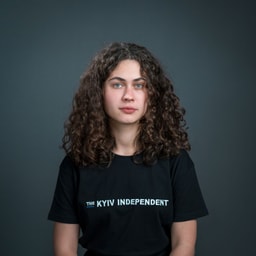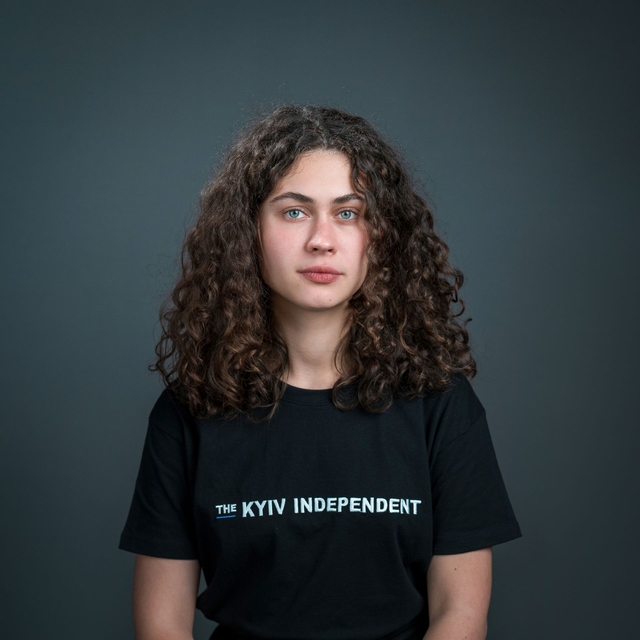26 countries pledge support for Ukraine’s post-war security, US role to be decided in coming weeks, Macron says

Editor's Note: This story has been updated to reflect additional comments by U.S. President Donald Trump.
U.S. President Donald Trump spoke by phone with President Volodymyr Zelensky and European leaders on Sept. 4, just hours after the "Coalition of the Willing" summit in Paris, where officials discussed security guarantees for Ukraine.
Afterward, Zelensky shared details about the "long and very detailed conversation with President Trump" on X.
"First and foremost, we talked about how to push the situation toward real peace. We discussed different options, and the most important is pressure, using strong measures, particularly economic ones, to force an end to the war," Zelensky wrote.
"The key to peace is depriving Russia’s war machine of money, depriving it of resources."
The call also touched on "maximum protection for Ukraine’s skies." Zelensky stressed that "until peace comes, Ukrainians must not be at the mercy of constant Russian attacks. Russian missiles and drones must not take lives."
He added that Ukraine has "proposed a format for protecting our skies for the U.S. to consider."
Later in the day on Sept. 4, Trump told reporters following the call that he will be speaking with Russian President Vladimir in the near future. "We're having a very good dialogue," he added.
Speaking at the press conference held after the call, French President Emmanuel Macron said that 26 countries are ready to send troops or contribute other support to Ukraine as part of security guarantees.
"Germany, Italy, and Poland are definitely among Ukraine's security guarantors. We won't go into details yet, but we already have an understanding (of cooperation)," Zelensky added.
Italy, Poland, and Romania later announced that they will not send troops to Ukraine, but will support Ukraine's security in other ways. Italian Prime Minister Giorgia Meloni said that her country is willing to support monitoring and training initiatives outside of Ukraine, and Romanian President Nicusor Dan said that Bucharest is prepared to support peacekeeping and stabilization missions.
Speaking to journalists after the Paris summit, Polish Prime Minister Donald Tusk said that Warsaw will provide logistical support for Ukraine's security framework.
U.S. involvement in the framework — aimed to shield Ukraine from future Russian aggression in the event of a truce or peace deal — will be determined in the coming weeks, Macron said.
He added that the U.S. and Europe will impose additional sanctions on Russia if it continues to refuse to participate in the peace process. He mentioned the previously discussed idea of a bilateral meeting between Zelensky and Putin, as well as broader talks involving the U.S. and Europe.
"We are sending a clear message that now all signals must be turned into reality. We have always been on the side of the law and defended a just peace. There can be no reward for aggression, because it is a prelude to further wars," Macron said.
The Paris summit comes as European capitals push to finalize security guarantees for Ukraine. Zelensky has demanded binding commitments, warning that without them, Moscow could regroup and attack again.
Ukraine's accession to the European Union is one of the key issues discussed and "a mandatory economic, political, and geopolitical security guarantee."
"Therefore, in our approach to security guarantees, this is an important point, which is set out in a separate section," Zelensky said.
In Paris, Zelensky stressed the importance of protecting civilians, as Russia keeps carrying out deadly air strikes on Ukrainian cities even amid the ongoing peace efforts.
"We have discussed a maximum protection of Ukrainian airspace – this is about saving lives. Until there is no peace, our people should not have to deal with constant Russian attacks. Russian missiles and Iranian drones should not take the lives of Ukrainians. Ukrainians should not suffer," Zelensky said.
Zelensky also commented on Putin's recent invitation to meet in Moscow, which a Russian state news outlet reported on Sept. 3. Zelensky said that if Putin is serious about the meeting, he shouldn't invite him to the Kremlin.
"Russia has started talking about the meeting, which is already good, but so far, we don't see their desire to end the war. Mature leaders should come out of a high-level meeting with some results, preferably the end of the war," Zelensky added.
Following the announcements at the press conference in Paris, Ukrainian lawmaker Oleksandr Merezhko, a member of Zelensky's party, told the Kyiv Independent that it's reasonable for Ukraine and its allies to think now about security guarantees, but emphasized that those decisions will only be relevant in the event of a ceasefire, which nobody is discussing anymore.
"First, we need an unconditional ceasefire, which was Trump’s idea from the very beginning," Merezhko said, adding that "at present, however, there is no ceasefire on the horizon."
While the exact vision for security guarantees remains unclear, Merezhko questioned whether the discussed framework would actually deter Putin from further aggression.
"To me, the best and most reliable security guarantee remains NATO membership for Ukraine," he said.
Ukraine has urged NATO to accept it as a member since the beginning of Russia's full-scale invasion in 2022, but the alliance has been reluctant to consider accession for a country at war.
Trump said in August that Ukraine would not be permitted to join NATO as part of any peace deal with Moscow, which opposes Kyiv's potential accession.
According to European Pravda, U.S. special envoy Steve Witkoff also attended the Paris talks, leaving the Elysee Palace about 45 minutes after the conference started.
Macron said in August that guarantees would not involve NATO membership but instead rely on a strong Ukrainian army backed by commitments from a "coalition of the willing," which includes over 30 countries.
The meeting followed White House talks on Aug. 18, during which European leaders pressed Trump to join security guarantees for Ukraine. Trump later said Washington could provide air support as part of the commitments, but ruled out deploying U.S. ground troops.
Although Trump warned of "severe" secondary tariffs if Moscow refused a ceasefire, his administration has so far only imposed a 25% tariff on India over Russian oil purchases.
Despite presenting himself as a peacemaker, military aid to Ukraine has been paused several times under the Trump administration, while peace efforts have dragged on for their eighth month without any results.
Trump told CBS News on Sept. 3 that he had initially thought ending Russia's war against Ukraine would be straightforward, but admitted it was more difficult than he expected.
The European Union has continued to impose new sanctions on Russia after Trump's return to office, despite the U.S. reluctance to apply economic presssure on Moscow.
EU diplomat Kaja Kallas announced on Aug. 19 that the European Union's 19th package of sanctions against Russia is expected to be ready in September.
The EU approved its previous sanctions package on July 18, describing it as "one of its strongest" to date.













